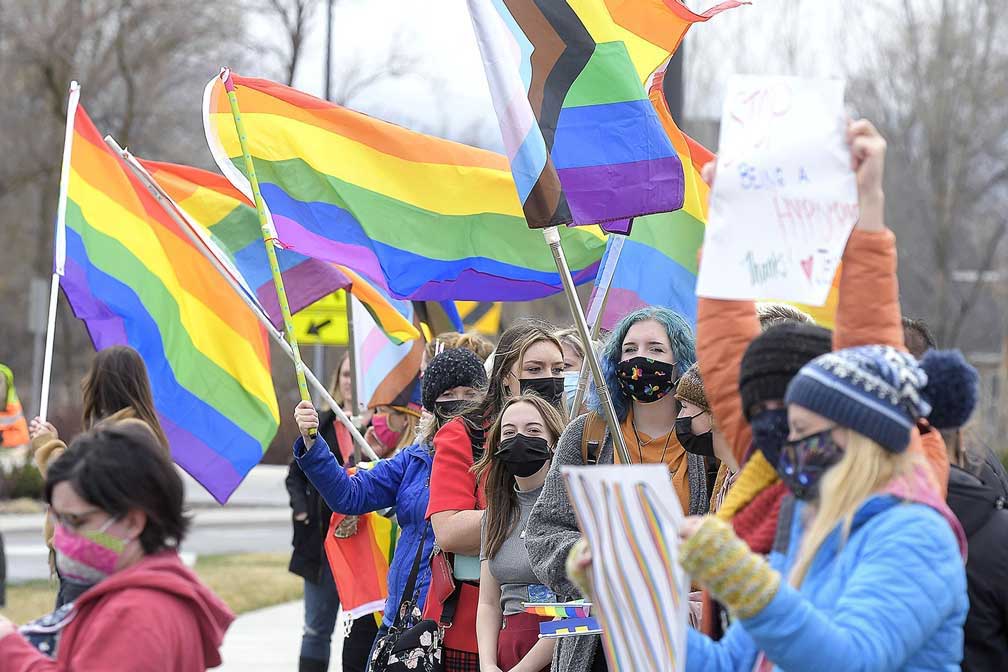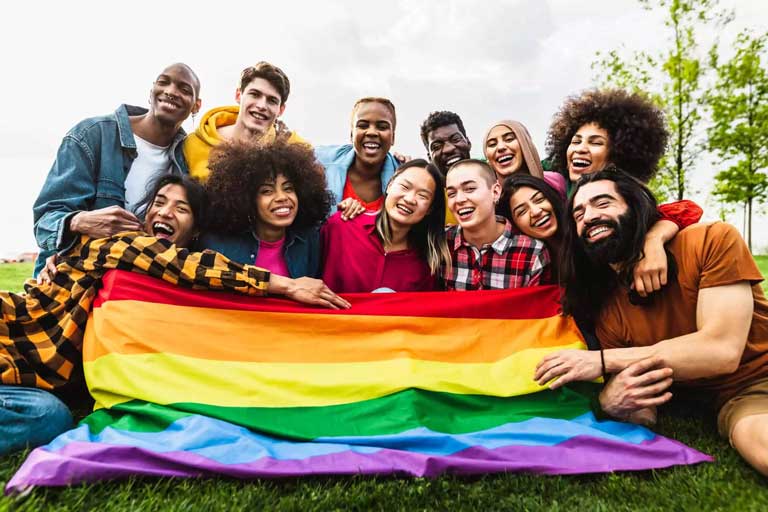The journey toward equal rights and acceptance for LGBTQ+ individuals has made significant strides, yet this community still faces unique health challenges that deserve attention. As society evolves, so too does our understanding of the diverse health needs of LGBTQ+ individuals. In this article, we’ll delve into some of the common health problems faced by the LGBTQ+ community, shedding light on the importance of tailored healthcare and support.
Mental Health Disparities
Mental health disparities are prevalent within the LGBTQ+ community. Stigma, discrimination, and the challenges of coming out can contribute to higher rates of anxiety, depression, and suicide. Creating safe and affirming spaces, as well as providing access to mental health resources, is crucial to addressing these disparities.

Sexually Transmitted Infections (STIs)
STIs are a concern for everyone, but they can be particularly relevant for LGBTQ+ individuals due to specific sexual behaviours and practices. Routine testing, safe sex practices, and education on STI prevention are essential for promoting sexual health within the community.
Substance Abuse
LGBTQ+ individuals are at a heightened risk of substance abuse due to the stress of discrimination, social isolation, and mental health challenges. Providing resources for substance abuse prevention, intervention, and recovery is vital for promoting overall well-being.
Cancer
Certain types of cancer, such as anal and cervical cancer, are more prevalent among LGBTQ+ individuals due to behaviours and health disparities. Accessible cancer screenings and awareness campaigns can help detect and address these concerns early.
HIV/AIDS
While significant progress has been made in the fight against HIV/AIDS, LGBTQ+ individuals, particularly gay and bisexual men, still face a higher risk of infection. Comprehensive sex education, regular testing, and access to pre-exposure prophylaxis (PrEP) can contribute to reducing transmission rates.
At Texas Specialty Clinic, we recognize the unique health challenges faced by the LGBTQ+ community. Contact us at (469) 496-2454 to schedule an appointment and experience healthcare that respects your identity and addresses your health concerns with expertise and empathy.

Eating Disorders
LGBTQ+ individuals may face body image challenges and pressure to conform to societal beauty standards. This can lead to a higher prevalence of eating disorders. Cultivating body positivity and providing support for those struggling with eating disorders are important steps toward addressing this issue.
Discrimination and Health
Discrimination and microaggressions experienced by LGBTQ+ individuals can have tangible effects on their health. Stress from discrimination can lead to chronic health conditions and contribute to mental health issues. Combating discrimination and promoting LGBTQ+ rights is crucial for the overall well-being of the community.
Hormone-related Health Concerns
For transgender individuals undergoing hormone therapy, hormone-related health concerns can arise. Proper monitoring, access to hormone therapy, and informed healthcare providers are essential for ensuring safe and effective hormone therapy.
Access to Inclusive Healthcare
LGBTQ+ individuals often face barriers when accessing healthcare due to a lack of understanding or prejudice from providers. Inclusive and culturally competent healthcare environments are essential for providing effective care.
Domestic and Intimate Partner Violence
LGBTQ+ individuals can be victims of domestic and intimate partner violence. Recognizing the signs, providing resources for support, and raising awareness about available assistance are key steps toward addressing this issue.
Recognizing and addressing the unique health challenges faced by LGBTQ+ individuals is a crucial step toward achieving health equity for all. By promoting mental health support, sexual health education, substance abuse resources, and inclusive healthcare environments, society can work towards ensuring that LGBTQ+ individuals receive the care and support they need to lead healthy and fulfilling lives. It’s important to continue raising awareness, advocating for change, and providing resources that cater to the diverse health needs of the LGBTQ+ community.
